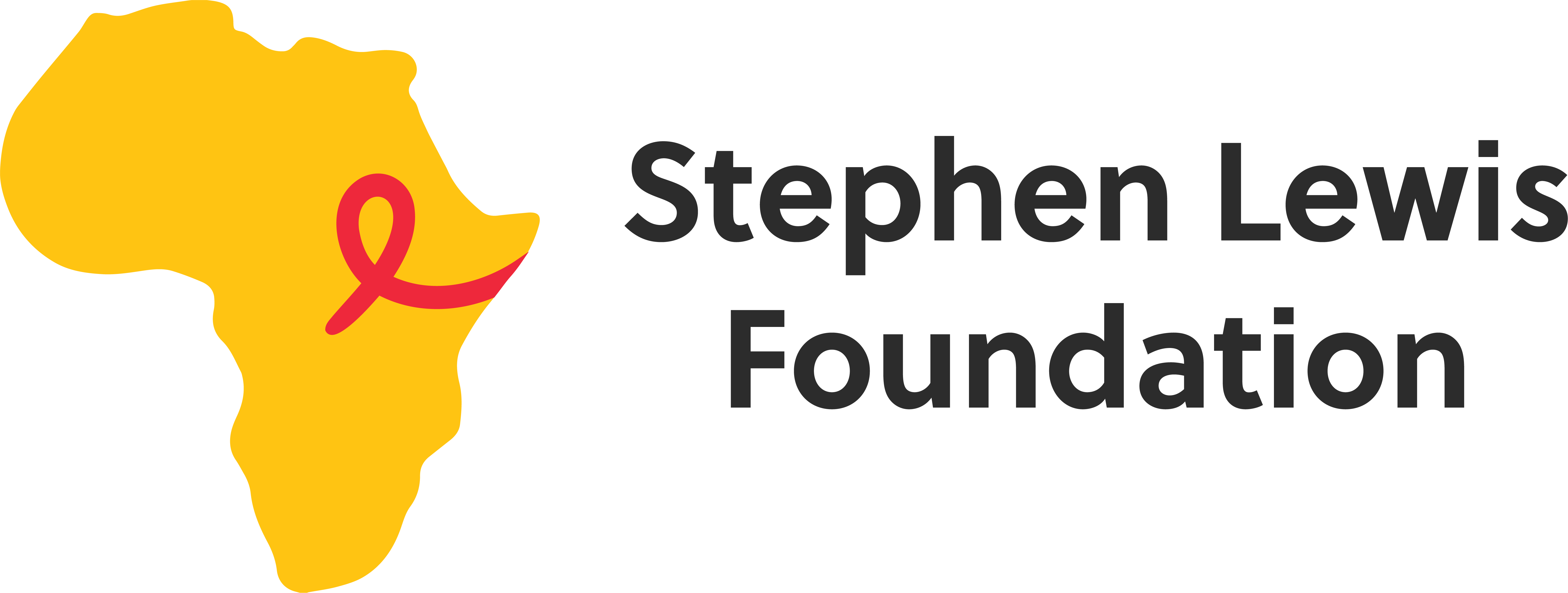International Women’s Day
Fifteen leaders: A tribute to women’s fortitude, excellence and contributions to health and human rights.
In recognition of the inspiring work championed by women in leadership, and in celebration of the 15th Anniversary of the SLF’s Grandmothers to Grandmothers Campaign, we’re proud to profile 15 exceptional women. They’re driving change, creating cohesive communities and mobilizing across generations to support others to do the same.
Featured Leaders
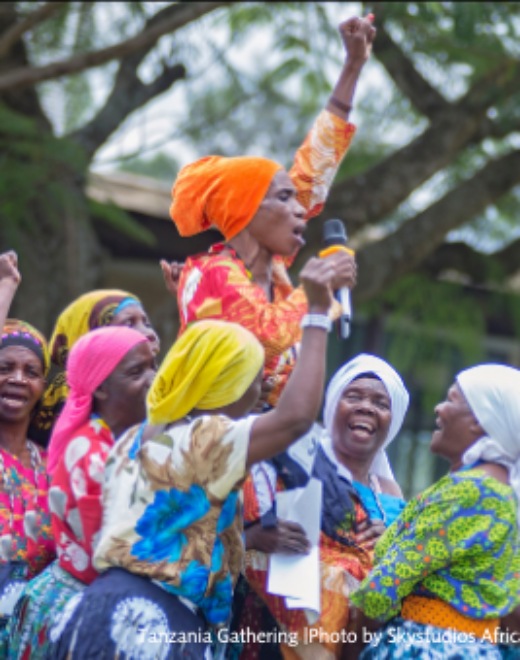
Grandmothers
“We are not here for pity nor favours, we are here to claim our human rights,” South African grandmothers declared as a collective at a gathering in Durban in 2016. When AIDS left millions of young people without parents or primary caregivers, it was grandmothers who filled the gap to ensure these children would have strong advocates to support their transition into adulthood. Fifteen years ago, grandmothers in Canada rallied to espouse the power of women supporting women, founding the Grandmothers to Grandmothers Campaign.
The Campaign has since grown into an international movement, grounded in collective action and solidarity. This movement redefines and challenges how the world sees older women around the world. Grandmothers in communities across sub‑Saharan Africa are restoring hope and nurturing resiliency while they mobilize and advocate for their rights and a more just future for themselves and their grandchildren. Grandmothers in Canada, Australia, the UK, the USA raise funds and awareness. Today, they are the backbone of the Stephen Lewis Foundation (SLF), serving with fortitude and tenacity in the spirit of sisterhood and solidarity.
Every dollar you donate to the Stephen Lewis Foundation is an investment in the international movement to change the narrative, to foster equality for women and girls, to stamp down systemic barriers that leave populations vulnerable to the ravages of diseases like AIDS and COVID-19. Your support helps to tip the balance of power towards a people-centred, asset-based, community-led approach to influencing policy and change. We have come so far. The movement is strong and momentum is building. Grandmothers have taken a stand. Young women are leading and demonstrating innovative and bold new ideas that challenge the status quo. And, the SLF’s commitment to convening, facilitating and leading alongside these women remains constant and strong. We need you to act with us. Until there is equality and justice, we need your voice. Will you invest in making a difference today and every day? Give monthly
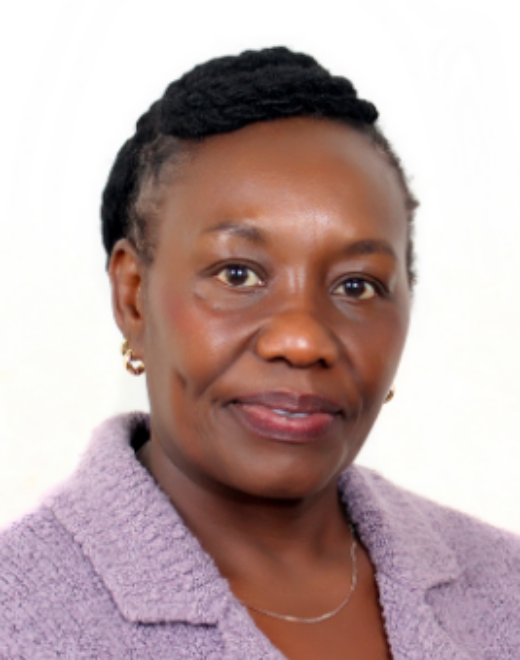
Wairimu Mungai
Wairimu Mungai is a founding member and Executive Director of WEM Integrated Health Services (WEMIHS), an NGO providing integrated health and development services in central Kenya. When asked why she leads, she replies, “That is a question I never thought about asking myself.” She laughs. “Actually, I never knew I was leading. I have found that growing up, and working in communities where people have to structure a lot of their own way of accessing the basics, are the kind of environments that expose you to opportunities for leadership – even when you haven’t deliberately gone out of your way to look for leadership roles.”
Wairimu is a grandmother of three, a farmer and community leader. She is proud of the impact her organization has had, and the bravery of the founding members to confront and address the complex challenges within their communities. Started as a small, community organization, WEMIHS, has emerged as a critical voice on the HIV and AIDS pandemic.
“When there were really no answers, when there were no policies, when there was no treatment, we evolved our work to address gaps and respond to challenges. What I feel good about is that I was brave enough to say, ‘Wait a minute, all this stigma, all this hopelessness, there possibly could be an answer.’”
Recognizing the power of community, Wairimu was able to use the lived experiences of people with HIV and AIDS, to break the ice, at a time when it was still a silent killer that was bringing devastation to so many communities. “Today, we can celebrate milestones, including community and stakeholder partnerships, programs and tangible impact.
She describes a number of things and people that keep her inspired to continue doing this work. She is especially grateful that the role that Kenyan women played leading to the independence of Kenya, is now being acknowledged and recognized. She also acclaims the late environmental activist and Nobel Peace Prize winner, Wangari Maathai, as an amazing inspiration.
When asked what she would like to say this International Women’s Day, she replies, “I would like to encourage peer women leaders on two fronts. First, the outcome of successful leadership cannot be measured by individual ability or skills…. For me it’s more an outcome of the desired change we make in the lives of those we are thinking about. Additionally, real leadership should be interpreted through the lens of the most vulnerable. Then, whoever was behind mobilizing and driving that transformation, is an agent of change…. I see myself as an agent of change.”
Make a donation today to ensure that community leaders best positioned to make concrete, long-lasting change in their communities have access to the resources they need and deserve. To find out more, visit Ways to Give.
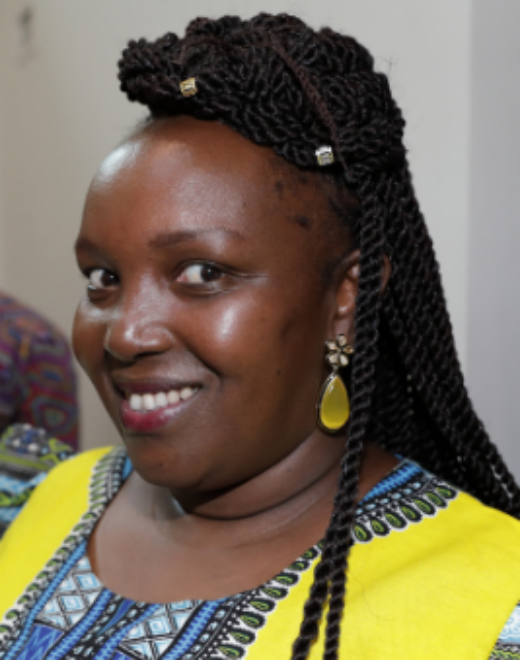
Peninah Mwangi
“I strive for excellence as a result of past experience,” says Peninah Mwangi, the Executive Director of Bar Hostess Empowerment and Support Programme (BHESP). “I have faced violence, stigma, discrimination and poverty as a young woman on the margins of society, thus I identify with all the women in our BHESP family. I am also a single mother and realize that as women we have to fight harder and smarter to achieve what others get easily.”
Peninah has been leading BHESP in various capacities for the last twenty years. “By leading sex workers and sexual minority women, I was responding to a need from women who were not considered by the mainstream women’s movements. I was also responding to human rights violations from these marginalized women of whom I am a part of.”
Peninah has been able to influence funding and other support for programs for sex workers both locally and internationally. Her efforts, alongside that of others, have supported over 100,000 sex workers and minority women in Kenya. She helped set up the first violence response mechanism, as well as the first alternative dispute resolution, for sex workers in Kenya. She also established the first advocacy and human rights program, and trained the first sex workers as paralegal officers. “Women’s rights activism requires that I remain part of the movement, that I stay connected and play my individual part as my contribution to the greater good.”
Peninah is a human rights defender whose enthusiasm, energy and motivation seem to have no limits. “I am inspired by the dreams of millions of young women and their desire to make it against all odds. Also, I am inspired by the women who came before me, applied excellence, gave their all, risked everything to make the big impact that we enjoy today.”
Visit Give Monthly to make a monthly gift in honour of a woman who inspires you. With continuous and sustained funding, community leaders can respond quickly when urgent needs arise and invest in long-term solutions that restore well-being, health and hope.
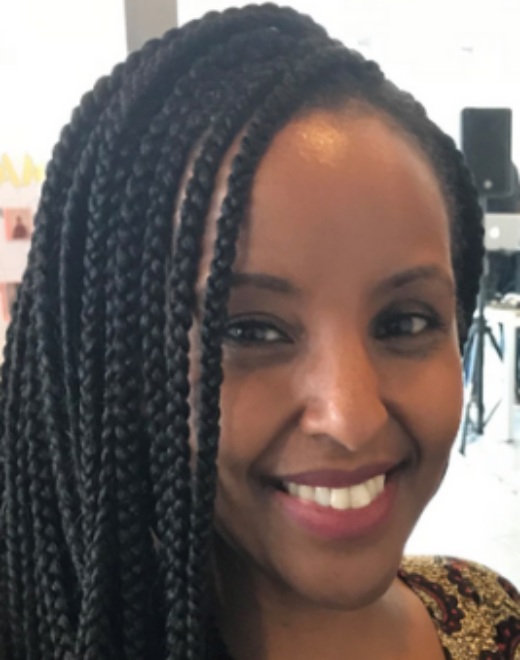
Leah Teklemariam
I come from a long line of women who defied the odds. In fighting for their own autonomy and freedom, they created a legacy that has driven me in so many ways. I lead because I feel a deep accountability to these women; to their sacrifices and dreams for the future.
Early in my career, I worked in South Africa for an international charitable foundation that was based in the USA. I arrived with the energy and misplaced idealism mirrored by so many expats on their first assignment. It didn’t take long to see the entrenched racism and misogyny in the organization’s policies, practices, and culture. This experience was both infuriating and illuminating. Sometimes we learn more from seeing what not to do.
I have been so fortunate in my career to be mentored by incredible women: Graça Machel, Theo Sowa, Hope Chigudu amongst others who have both inspired and challenged me. My leadership has been driven by the continuous learning and unlearning that is necessary to translate values of liberation, anti-racism, anti-colonialism, feminism, and justice into a tangible way of working and being. As Director of Programs at the SLF, I am fueled by the quest to figure out what it really means to develop a funding approach and team culture that affirms dignity; that acknowledges intersectionality, that is anti-racist, that builds mutual respect, exudes joy and embodies solidarity and feminism. In addition to my profound commitment to the African continent, I have been deeply touched by the HIV pandemic. I mourn family members and friends lost to the illness, and have seen how the stigma and discrimination that surround HIV can rip through once tight-knit communities to keep people isolated, terrified, and without hope. When my losses are joined with countless others across the African region and in the diaspora, a clearer picture comes into focus of societies completely reordered as a result of HIV. An entire generation gone. The moms and dads, the aunties and uncles. HIV may no longer be on the radar here in Canada, but in the countries that were hardest hit in Africa, life will never be the same. However, in the midst of so much loss is a powerful story of community resilience, and the leadership of women across Africa. This relationship between my own personal losses and inspirations with the collective impacts and dreams of African peoples everywhere is what will forever bind me to this work.
Workplace giving has resulted in millions raised for grassroots organizations! You can join the movement. Contact us to learn about fundraising with your colleagues, or to get involved with Give a Day.
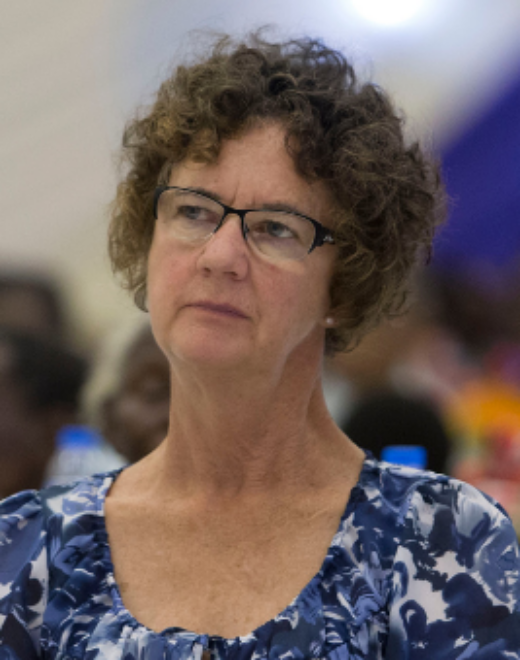
Nola Ayers
“Being involved in the Grandmothers Campaign has given me a new social circle of remarkable women,” shares Nola Ayers, Grandmothers Regional Liaison and member of G4G Regina. “After retiring in 2010 and losing my husband in 2011, the Campaign has filled many days in many ways. I feel a sense of purpose and enjoy contributing to projects that improve the life of fellow grandmothers and their grandchildren in Africa.”
“Attending the first-ever National Grandmothers Gathering in Uganda, in 2015, was a remarkable experience. To see the work of community-based organizations and the courage and resiliency of the African Grandmothers we met was inspiring and motivating. The power of the grandmothers was so present. It was an experience I will never forget.”
“I believe in the concept of being a global citizen and the force of a group of committed, thoughtful citizens. That’s the Campaign and all the members and grandmothers. It’s not going to be the governments who make the changes necessarily, it’s the citizens who are making change. I try to fulfill that concept. My philosophy about building relationships is to be curious, not critical, and seeking first to understand and then to be understood. That just happens to come from training and a career that included negotiation and mediation.”
“Working together, walking hand in hand and heart to heart with grandmothers in Africa is where the excellence comes in. It’s the excellence of the whole Campaign. I lead because I believe in this power of the Campaign. I believe in the values and the efficacy and ethics.”
Aeroplan Points Matching Week is here, March 1–7. This is a special opportunity to give your points more purpose. Double your impact! This week, Aeroplan will match points donated to the SLF, up to 500,000. Visit our Aeroplan donations page.
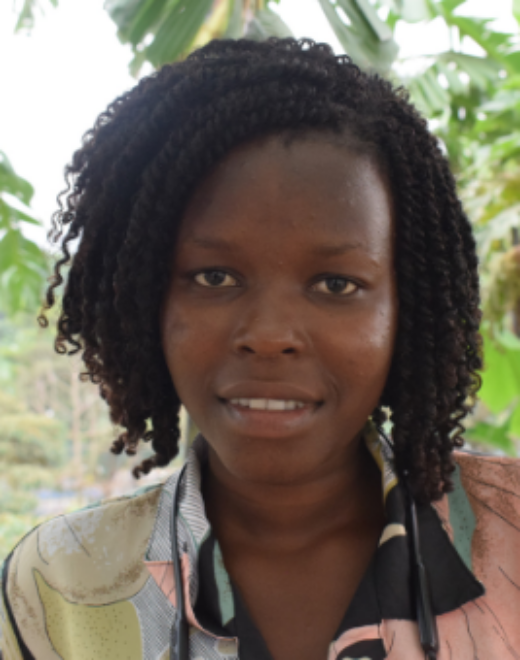
Ondoru Faith
When you speak to Ondoru Faith, there is simply no doubt that she is an inspiration to all the young people around her. She’s taken on the enormous job of being a role model and advocate for children and youth living with HIV.
“I lead because I love acting as a voice to the voiceless,” she says. Faith volunteers as a peer educator at Reach Out Mbuya (ROM) and heads up an income-generation project with other youth, making paper bags. She is 22 years old and has completed her first level of post-secondary studies, though, like many others, her education has been disrupted by the COVID-19 pandemic.
Together with other peer educators, Faith supports children and young people living with HIV through children’s health forums that provide opportunities for her to educate and share knowledge, while encouraging participants to contribute their experiences and testimonies to reduce isolation and create a sense of belonging. She says, “Sometimes young people living with HIV are not so open to the adults or the counsellors. It makes it a lot easier for us to talk to them, to ask what the problem is, so that it is us now to act as their voice and to speak out for them.” She continues to support young people like her through home visits, especially those having difficulty adhering to their medication, and has attended national annual advocacy forums organized by the Uganda Network of Young People Living with HIV (UNYPA). These have given her new insights and strengthened her resolve to ensure that young people remain empowered to speak up on issues affecting them, particularly HIV and AIDS.
Faith is proud of how far she has come, but confesses that it has not been easy. She explains that at times she felt overwhelmed by the internal and external HIV-related stigma and felt everything weighing heavily on her heart. “But,” she says, “one day, I woke up and said, ‘Faith – Settle. Think. Decide.’ I had to realize that [antiretroviral medications] were going to give me the life I want. I am living healthily. I am happy and living a positive life.”
Like what you’re reading? Join our SLF community to learn more about the powerful impact our grassroots partners in sub-Saharan Africa are having in their communities and the ripple effects of your support. You’ll be in the know about exciting events and special updates from our partners. Our community is stronger with you in it. Follow us on Facebook, Twitter, Instagram and LinkedIn.
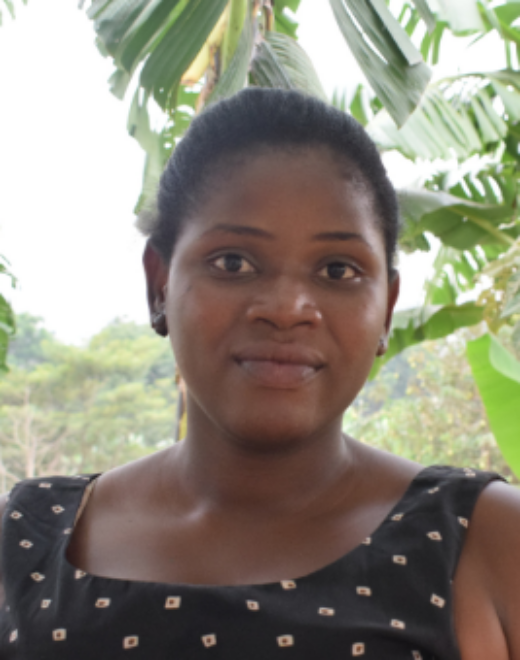
Vivian Namara
“I love leadership and I love what I’m doing,” says Vivian Namara, a youth peer counsellor with Reach Out Mbuya (ROM) in Uganda. Vivian joined ROM when she was 6 years old as a member of one of their peer support groups. Now 24, Vivian is one of the most powerful young leaders at ROM, a mobilizer and an ambassador in her own right to other young people in her community.
When asked about the impact she believes she is making, Vivian responds, “For me, personally, it’s teaching young people how to be role models. Teaching them that everything starts with accepting your HIV status. If you don’t accept your status, you’re not going to do anything with your life. You’re always going to live in self-denial. For me, it started with accepting my status. From there, I became a role model to some young people. You know, when you’re a role model, you’re bringing up another role model. As an activist, I’m so happy that I can see a person who looked up to me also growing to be looked up to, because I don’t want it to stop with me. I don’t want to be the only role model. What of the rest who are coming up? What are they going to be? So that’s what I am always looking at. Can I make her a role model? Can I make him a role model? Because I know my leadership is able to help someone, somehow. I’m changing someone’s life.”
Vivian reflects on her leadership journey with considerable insight and clarity and a determination to thrive, regardless of the obstacles and naysayers that she encounters. “Being a woman and leader is not easy. For us we are dealing with HIV. People underestimate us, people undermine us sometimes. But we are of value to the country and the world. We are human beings.” This type of resilience and resolve is what makes Vivian truly phenomenal.
Her message this International Women’s Day, to any young woman out there like her, is: “You can still achieve your dreams. Being HIV positive is not easy, but you can make it easy.”
Do you know a young woman or girl who is making a valuable contribution in their community? Share HERstory with your social media networks, using the hashtag, #IWDSLF.
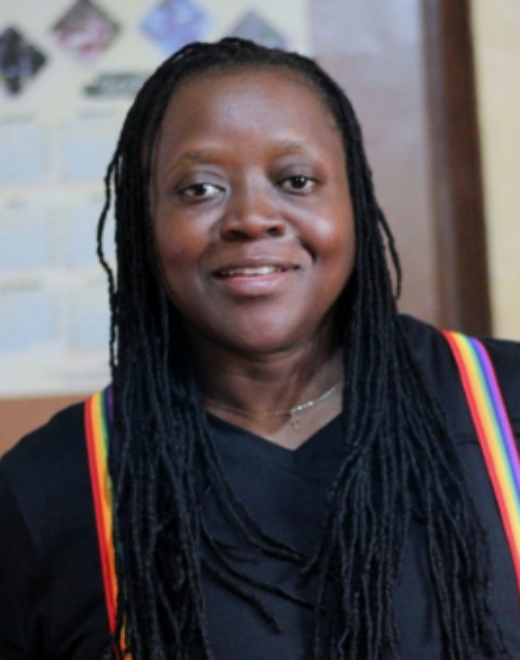
Ssenfuka Joanita Warry
“Leadership is different at different times; it depends on the people you are working with at any given time. I get excited to go to work every morning. The space where I work feels like a home away from home. We have built a good team and I am absolutely passionate about what I do. This inspires me and gives me strength.”
Ssenfuka Joanita Warry is a human rights defender. She is the executive director of Freedom and Roam Uganda (FARUG), an organization that has been addressing discrimination against lesbian, bisexual, transgender and intersex people for close to two decades.
Warry also holds many other leadership positions, including her role as the chairperson of the LGBTI Catholic Club and as a board member of Sexual Minorities Uganda (SMUG), the largest network of LGBT organizations in the country. One of her most significant roles is as a committed activist on HIV and AIDS and related health issues affecting LBQ women, and creating opportunities for these women to be involved in national HIV planning and programming.
When asked about the impact that she has made, she says that it is difficult to separate her individual achievements from that of the organization she leads as well as that of the LGBTIQ community in Uganda. However, she reflects, “I have been involved in movement building, connecting different organizations to work together. That has led to the birth of many other organizations.”
She is keen to highlight that there is still so much work to do, especially in reference to the rights of LBQ women, and is committed to breaking the cycle of victimization by educating more women about their rights.
“To celebrate this International Women’s Day, I want to borrow a quote,” she considers. “When women gather, good things happen.”
“Finally,” she thoughtfully concludes, “when I reflect on what has been happening during the COVID-19 pandemic, the majority of nurses and volunteers who have been feeding the underprivileged, are women. Collectively, women can change the world.”
This Zero Discrimination Day, March 1, join Warry in championing health and human rights for LGBTIQ communities in sub-Saharan Africa. Learn about Partners in Pride and the role you can play.
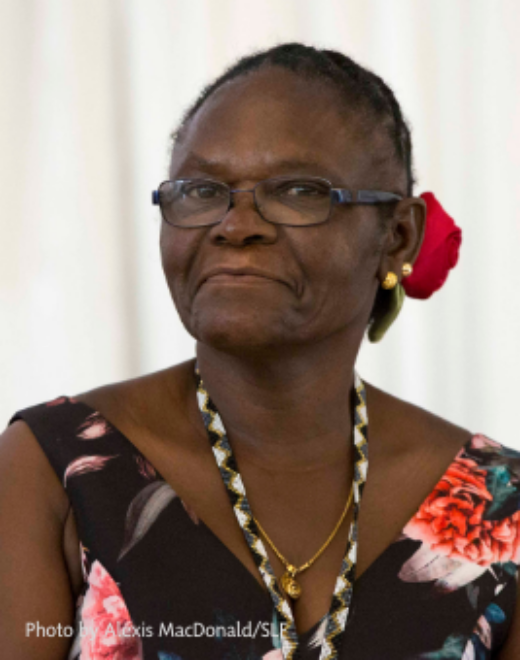
Pfiriaeli Kiwia
Pfiriaeli Kiwia is the executive director and co-founder of Kimara Peer Educators and Health Promoters, a community-based NGO responding to HIV and AIDS in Dar es Salaam, Tanzania. She holds a Bachelor of Arts degree in Economics and built a thriving career in banking. “Don’t count the numbers,” she says. “Just look at me and say I’m 16.” She will be turning 70 this year, and she is also a grandmother of thirteen, who has overcome great personal odds in her own HIV journey.
“This is how I got involved… because of my personal experiences, because I witnessed many people in my community, including family members and close relatives, get sick. I chose to talk about stigma around HIV and started sharing information and knowledge with other people about HIV. This is my story, and my life since then has been devoted to listening to those who are facing the same stigma I did. When we started, I thought it was going to be a neighbourhood program, a friend to a friend, neighbour to neighbour, but slowly and slowly, it was spreading wider. We have touched many lives.” Today, Pfiriaeli and her team lead research projects and document from the frontlines, how stigma affects people living with HIV and AIDS.
Today marks the three-year anniversary of the Tanzania Grandmothers Gathering that brought together hundreds of grandmothers from across the country and around the world. Pfiriaeli was also the co-chair of the Organizing Committee, coordinating and leading the gathering. When asked about her thoughts on grandmothers, she says without hesitation, “These are the people who have kept our communities together. Otherwise, we would have seen a lot of children on the streets, because the biological parents are no longer there.” She continues, “I see grandmothers as the people helping to mitigate the impact of HIV in our country. The grandmother is the one who has stepped in as the mother. They are the people who have kept communities together…. We want people to recognize how grandparents have really been the parents of the nation.”
When asked what message she wanted to share for International Women’s Day, she says, “I see the exceptional leadership in women. Women lead with their background, with their reason, with their heart, with their feeling, with their understanding. Sometimes, we say women are born leaders without knowing they are leaders…. Women are really holding communities, holding families, holding everything together, even when they have nothing. But they know it’s their responsibility. So it’s important to encourage them and recognize their contribution.”
Pfiriaeli is extremely proud of what she has managed to achieve with the support of many women, and how the seeds she sowed through her community-based organization have multiplied across the country.
The Stephen Lewis Foundation invites you to demonstrate your support for our partners, who are making strides in dismantling systems, influencing policy and creating space for people with HIV and AIDS in sub-Saharan Africa to live free of social stigma and persecution. To renew your commitment to preserving the dignity and value of our partners and their communities, become a Mid-Level Donor by making a gift of $500. Or more. For how you can get involved, please visit Ways to Give.
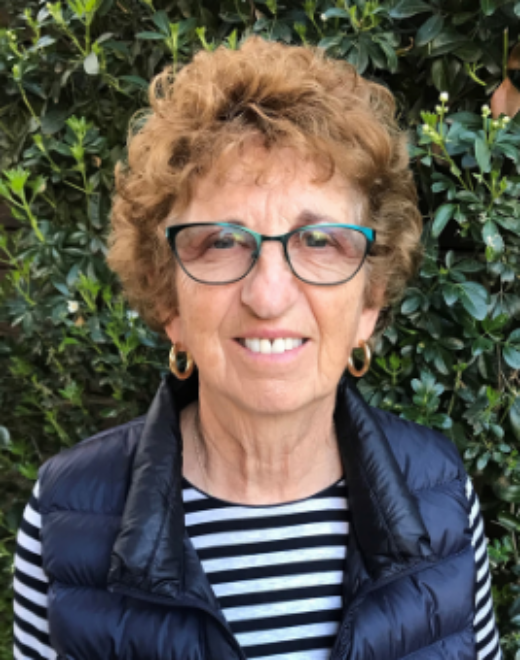
Sandy Guest
“I’ve been a volunteer most of my adult life,” shares Sandy Guest, one of the founding members and President of Grandmas Across Borders, a grandmothers group in Williamstown, Victoria, Australia, formed in 2017. “I had a wonderful mother-in-law who had a rule in her family that everyone had to volunteer. My husband and I have instilled that in our two sons. We’re a family of volunteers. If I look back at my volunteer and professional life, I’ve had lots of different experiences. I had a Churchill Fellowship to study community leadership. I’ve always been proactive. I’m curious and a keen learner. I’m a connector by nature. I like working with other people, to contribute to something purposeful.
“My Canadian daughter-in-law’s mom is involved in a grandmother’s group on Vancouver Island. My daughter-in-law purchased me a handmade bag from her mom’s group. I asked to hear more and when I learned more, I thought of the group of women friends I had made at our local gym. I knew them to be a group with a range of talents and skills and a group very caring about others. Grandmothers to grandmothers – the cause resonated in me. In some small way, we are confident that our fundraising efforts result in some dollars and that those dollars can be invested to do something worthwhile. I think people see the thread. We do something here and we trust that the groups in Africa know best how to invest it to have an impact in their communities.”
Make a tribute donation to honour a leader in your life. Select “Give in Honour” when you make a donation, to send a beautiful e-card or printed card to celebrate your friends and family, and make a meaningful impact for our grassroots partners and their communities in sub-Saharan Africa: www.stephenlewisfoundation.org/donate.
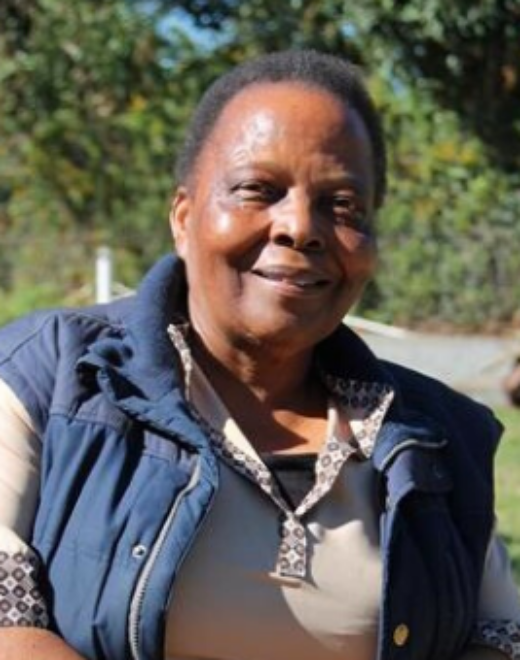
Cwengekile Nikiwe Myeni
Cwengekile Nikiwe Myeni is an experienced nurse, community leader, and 77-year-old grandmother of nine who grew up in a rural part of KwaZulu-Natal, and worked for the Department of Health for 30 years. “It was a miracle that I got educated, because my family were very poor and it was during the apartheid era in South Africa.”
When Cwengekile retired in 2003, the AIDS pandemic was still ravaging communities all over South Africa. While she had looked forward to her retirement for a long time, three months into it, she felt compelled to take action rather than watch members of her community suffer and die. “Working as a nurse made me realize that life is not about yourself, it is also about others.”
Cwengekile is the passionate founder and ongoing community liaison of the Hillcrest AIDS Centre Trust’s pioneering Gogo Support Groups Programme and Gogolympics sports event for grandmothers. She started the Grandmother Support Groups as a response to the needs of grandmothers in her community who were caring for children orphaned by AIDS. When asked why she leads, she said, “To lead is an in-born thing, for me. But I was also encouraged by watching my parents, who were very poor, but they were always helping others.”
She is inspired to continue to do the work she does because of the love for her community and the ongoing needs of rural areas. “It is the passion I have for the work I am doing, and the people I work with. It inspires me to keep doing what I do when I see people’s lives changing for the better, especially in rural communities like mine – the Valley of a Thousand Hills.”
She stresses the important role that grandmothers play in communities. “I have learnt a lot working with grandmothers. If you teach a grandmother, you teach the whole nation. Their leading role starts from the home. They are the stronghold of their families. They are real anchors of the community and the nation, and should be supported more.”
The Grandmothers to Grandmothers Campaign is an international solidarity movement that amplifies African grandmothers’ voices and mobilizes older women’s expertise and leadership to restore resilience and hope. Act in solidarity and join us today: www.grandmotherscampaign.org.
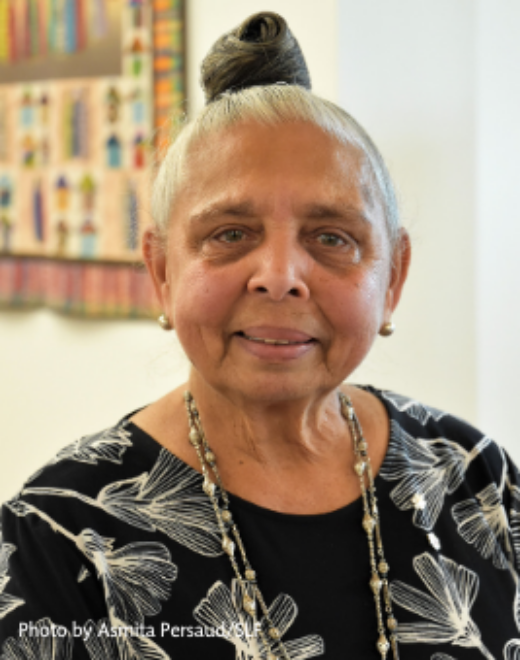
Patsy George
“We are responsible for each other. We are one family – the whole global community.” This is how Patsy George fulfills the values that she grew up with. Patsy is a founding SLF board member and an active supporter of both the Grandmothers to Grandmothers Campaign and monthly giving at the Foundation. Coming from a family of activists and organizers, Patsy moved to Canada from India as a young woman. Throughout her career as a social worker, community organizer and volunteer, she has used her skills and leadership to support, empower and encourage her community.
“Some of us had no choice but to become leaders,” says Patsy. “Part of what we all have to do is share what we have because we are all responsible for each other. This is part of the reason why I feel excited about being part of the Stephen Lewis Foundation, because that’s the focus of our organization – to empower the younger women and girls, older women, grandmothers, in order that they can be active and bring about changes in their own communities.”
Patsy’s sense of leadership began very early: “Well, I think it’s really early education. My parents believed in the fact that girls must get educated. To me education – educating girls – is very important, and I think that’s one of the advantages I had. That opened up opportunities for me, for work, for taking on leadership in community organizations, for feeling confident in myself that I have something to give. To me, it goes back to education. Educating girls is educating the family and the community.”
Visit Monthly Giving to make a monthly gift in honour of a woman who inspires you. With continuous and sustainable funding, community leaders can respond quickly when urgent needs arise, and invest in long-term solutions that restore well-being, health and hope.
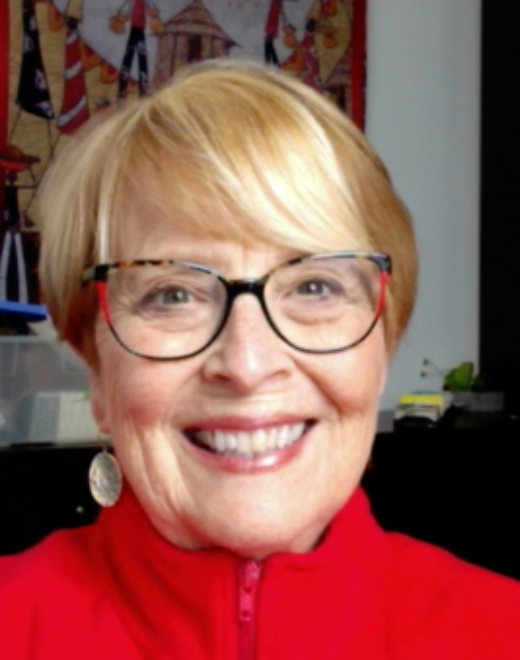
Janine Reid
“When I got involved in the Grandmothers Campaign, I wasn’t a grandmother yet, but I’d heard Stephen Lewis speak and I could empathize with the situation for children orphaned by AIDS,” shares Janine Reid, founding member and former chair of Royal City Gogos, a grandmothers group formed in 2009. “The Campaign gives me opportunities to learn new things – to teach myself how to do graphic design and new crafts. Before, I didn’t know how to plan a scavenger hunt, a craft fair, or a travelling art show, but I seem to be able to think my way through how it might work well enough to communicate that to other people, so that they’re willing to engage, make it better, and find a place for themselves in the work. I like the challenge of coming up with new ideas and designing new events. At the same time, we get to raise funds for the SLF, so that’s doubly gratifying. And I love the women that I’m associated with – it’s a win/win/win.
“Since the beginning of the Campaign, I’ve also been inspired by the tremendous political awareness of African grandmothers, and how they recognize and use their power and agency. I see the way the SLF has adapted over time, and responds to the grandmothers’ needs. The SLF makes a commitment for long-term engagement and my group has the same long-term commitment in continuing to fundraise. Those things give me hope. I also see my family, my kids and my grandkids looking on all of this, and perhaps understanding a greater sense of purpose in their own lives.”
The Grandmothers to Grandmothers Campaign is an international solidarity movement that amplifies African grandmothers’ voices and mobilizes older women’s expertise and leadership to restore resilience and hope. Act in solidarity and join us today: www.grandmotherscampaign.org.
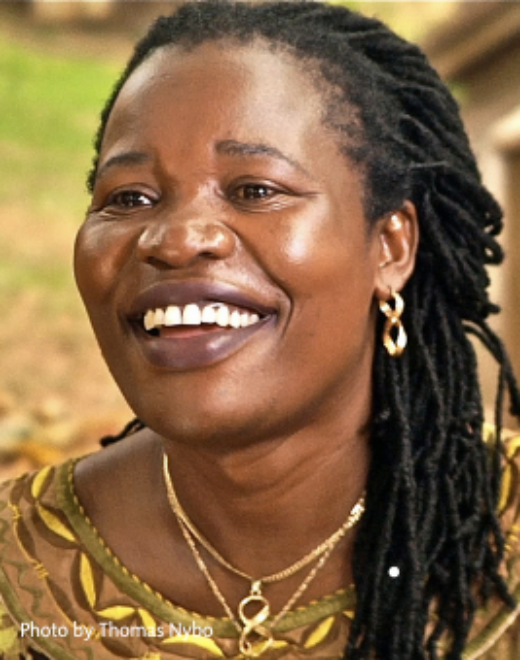
Idah Mukuka Nambeya
For as long as she could remember, Idah Mukuka Nambeya has been blazing a trail as a force to be reckoned with, breaking stereotypes and pushing boundaries to influence and embody the type of leadership that could bring about sustainable change in her community. Idah’s passion and her commitment to ensuring the inclusion of a strong feminist voice, in shaping responses to the challenges faced by women and girls, is what drives her.
Her first taste of leadership began in primary school, where she acted as a class monitor. This was unusual at the time since boys dominated these coveted leadership roles. Undeterred, Idah has since tackled leadership positions at the community level with fierce determination and bravery, accessing male-dominated spaces to give a voice to women. She is the only female member of the executive team at her church and has left her mark at prestigious organizations such as the Chilenje Childcare and Adoption Society in Zambia, YWCA, Centre for Infectious Disease Research, and Abataka Women Living with HIV/AIDS in Zambia. Currently, Idah uses her lived experience and unique insight to strengthen the Grandmothers Campaign here at the SLF, giving presentations and talks to grandmothers and ‘grandothers’, and members of the public, across Canada and in other countries, as opportunities arise.
“I am inspired to stay connected to the work when I see the tangible successes that come out of it,” says Idah. “Visiting the different countries, it was clear to me that without intervention, HIV and AIDS could wipe out the entire continent. But witnessing communities becoming healthy again, and the rebuilding of families, thanks to community-led initiatives, I became even more strongly motivated to stay involved.”
You can make a difference in the lives of others by making a contribution today that will demonstrate the impact of your commitment well into the future. By choosing to leave a gift in your will to the SLF, you are making a powerful statement about how you would like to memorialize our shared values and assure the continuation of this important work for generations to come. Anyone can leave a lasting legacy. To find out more, visit Legacy Giving.
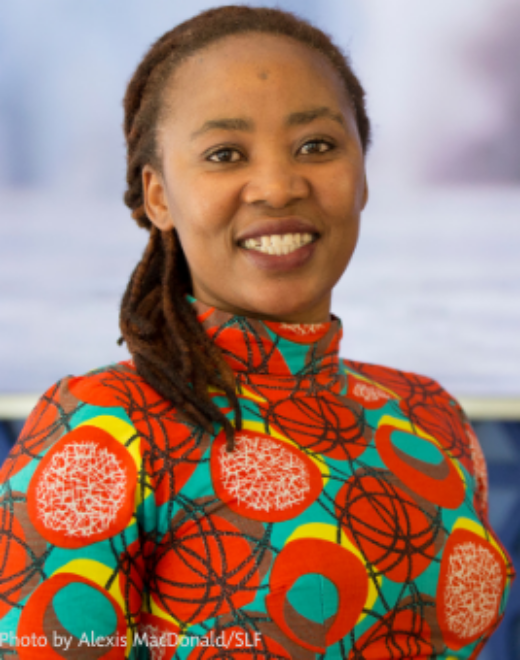
Vuyiseka Dubula-Majola
Vuyiseka Dubula-Majola describes her inspirational work very simply: “We lead because we need someone to inspire and motivate us as part of the change. I lead purely because if I don’t, who will? We need more, not fewer, feminist leaders to take us to a place called freedom, equality and a just society. So, I don’t lead by choice, but it’s the conditions where we find ourselves that compel us to lead.”
Vuyiseka has been a leader her entire life. She has received recognition throughout her career as an activist, particularly for her leadership as one of the youngest women leading the AIDS movement in South Africa. Among the many positions she has held, she is the Director of Stellenbosch University’s Africa Centre for HIV and AIDS and is also the former General Secretary of the Treatment Action Campaign (TAC) in South Africa. In her spare time, she is completing her PhD at the University of KwaZulu-Natal’s school of Development Studies.
In spite of her exceptional achievements, when asked about her own excellence, Vuyiseka maintains, “I am far from excellence. I don’t know of anyone who can call themselves excellent leaders. But, we must lead with the values and principles of a good leader.”
Do you know a woman who inspires you to do better? Someone who brings hope and changes the lives of others through their service? Is a woman in your life making her mark through her leadership by creating stronger communities and propelling others to greatness? We would love to hear about this remarkable person in your circle. Help us spotlight the excellence that is demonstrated by women everywhere, every day by sharing HERstory with your social media networks, using the hashtag, #IWDSLF.
